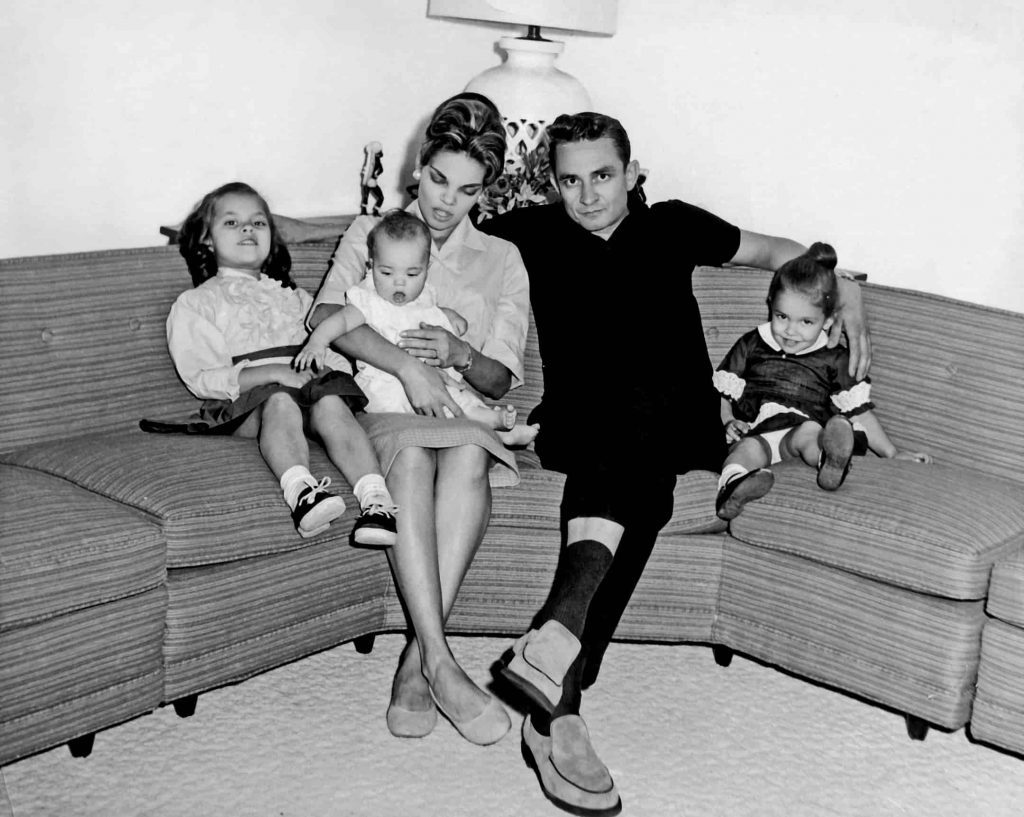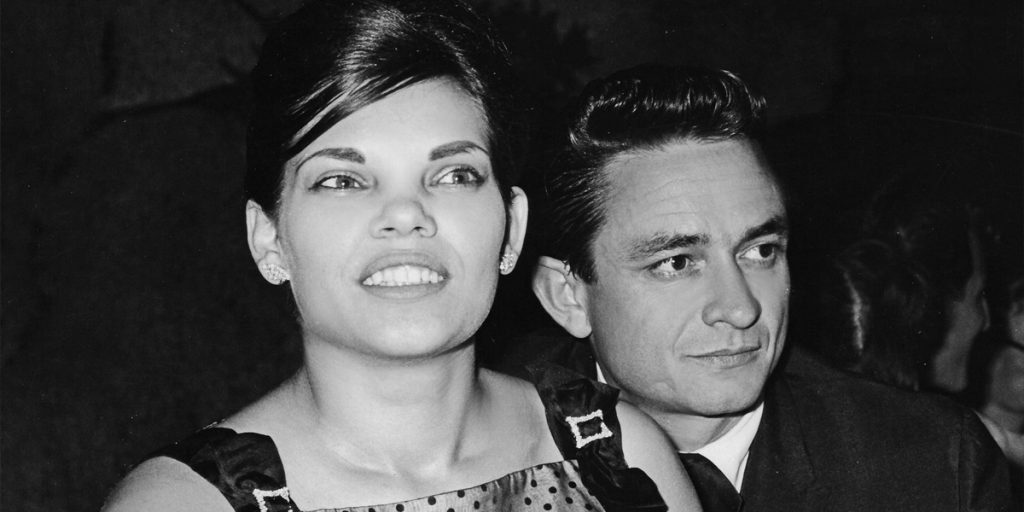My Darling Vivian finally tells Vivian Liberto’s story, which is often ignored or diluted, and gives new insight into the life of Johnny Cash ’s first love.
I know I saw Walk The Line around the time it came out, but that was fifteen years ago, and I only have vague recollections of a couple key plot points. One of the few things I do remember is how the film portrayed the relationship between Johnny Cash and his first wife, Vivian Liberto; mostly as toxic and unpleasant from beginning to end, ultimately painting both of them in a negative light. Again, this is how I remember it 15 years later, so forgive me if my half-formed memories are less than accurate.
The reason I bring up Walk The Line is that, from the very beginning, My Darling Vivian clearly lays out its mission statement: Vivian Liberto was effectively removed from Johnny Cash’s story in the public eye, and whatever memories of her that remained were uniformly negative, reflected in the toxicity portrayed in the movie Walk The Line. My Darling Vivian tells her story through the lens and voices of her and Johnny’s four daughters, each of them sharing stories of their parents, and providing their own accounts of how fame and fortune ultimately changed their family forever.
Now I’ll be the first to admit that I’m not particularly attuned to the country music community of the 1960s and 70s, but it does seem that June was typically credited with pulling Johnny out of his addictions, while Vivian is generally portrayed as being the one who left when he needed help. My Darling Vivian does an excellent job of refuting this idea, humanizing Vivian, and finally giving her side of the story.
The film shows Vivian as a loving mother and wife who was ultimately sucked into this world of unprecedented fame for which she was unprepared. And who would be? Being married to one of the most famous people on the planet would be difficult for anyone. We get the story of how the couple met when they were teenagers and the hundreds of letters they sent each other while Johnny was deployed in the Air Force. We also get to see how deeply she was affected by Johnny’s substance abuse, and how Johnny’s dependence on pills, months of absence at a time, and budding relationship with June Carter took its toll on the children as well. In the end, the film argues that the couple’s divorce was in everyone’s best interest, and that Vivian and Johnny continued to love each other until they died.

Immediately, My Darling Vivian is an educational watch, as there were several stories I had never heard prior to my viewing. Among the most significant was when the young Cash family was targeted by the Ku Klux Klan: Vivian was of Sicilian heritage, and her complexion was darker than most caucasians. After Johnny was arrested for bringing pills over the Mexican border in the mid-60s, the press got a picture of Vivian retrieving him, published it, and claimed Johnny Cash had a black wife. This led to threats against the Cash family from the KKK, and cancelations of all appearances in the American south. All of this ultimately led to the Cashes having to get doctors’ notes proving that Vivian was, in fact, white. And this is just one of many stories of the things Vivian had to go through during her time in the spotlight; a spotlight she did not want in the first place.
Visually and narratively, My Darling Vivian is simple but effective: Most of the visuals come from old photographs and home videos from the Cash household, painting an intimate picture of the family’s personal life. The narration is provided exclusively through Vivian and Johnny’s four daughters: Rosanne, Kathy, Cindy, and Tara. It’s fascinating to listen to them tell their parents’ story because so often in documentaries like this, the people discussing someone as famous as Johnny Cash describe with the reverence of an almost superhuman nature. But to hear everything through the lens of his children not only contributes to the personal nature of the documentary, but also adds an extra layer of perceived authenticity and care.
Finally, while My Darling Vivian is Vivian and her children’s story, as a fan of his music, I appreciated how Johnny was portrayed in all of this: the film is honest and does not shy away from his many mistakes, but I did find it a relief to know that Johnny wasn’t a monster. He had a clear love for his family, and he is portrayed more as a flawed young man who fell into fame too fast, succumbing to the vices offered by money and popularity.
My Darling Vivian is a nuanced look at one of country music’s most tumultuous-yet-endearing love stories, told from the perspectives of the people who knew Vivian and Johnny best. Though it may initially seem like an esoteric topic, Vivian Liberto’s story is one worth hearing. Often, history has a tendency to forget women and their contributions, or to remember them coldly. Vivian was a victim of both, and to finally learn about her in earnest is a compelling experience that I could easily recommend to anyone.
My Darling Vivian will be available to watch at home in the U.S. on December 8, 2020.

